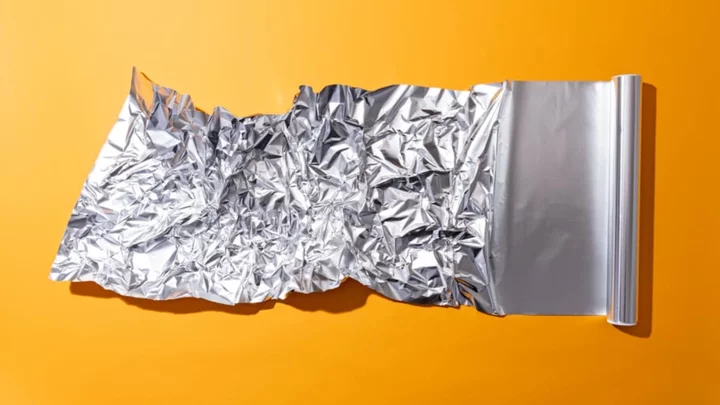Aluminum foil comes in handy when it’s time to wrap the leftover food from a dinner party or holiday feast. And though it’s sometime’s called “tin foil,” the two terms technically refer to different products.
What’s the difference between tin foil and aluminum foil?
In the early part of the 20th century, most of the foil produced was, in fact, made of tin. It was used in packaging—cigarette packs were lined with it and chewing gum sticks were wrapped in it—and also for wrapping leftover food. The problem was, it gave whatever it touched a distinctive “tinny” taste, just like foods left too long in a tin can.
Tin foil had other uses, too. It was also used as a recording medium for a time (Thomas Edison’s famous 1877 recitation of “Mary Had a Little Lamb” was on tin), but because the recordings didn’t last very long, manufacturers switched to wax cylinders.
In 1926, the U.S. Foil Company (the parent company of Reynolds Metals) introduced aluminum foil. It was an immediate hit. The material was lightweight and non-corrosive. Because it could be rolled much thinner and the yield per roll was much higher than other foils, it was also less expensive to produce. One of the first commercially available products available pre-wrapped in aluminum foil was Edy’s Pie (then known as Eskimo Pie).
So even though tin foil has been out of vogue for almost 100 years, some people still cling to that name—maybe because it has three less syllables than aluminum, or maybe because that’s what grandma always called it.
A version of this story originally ran in 2014; it has been updated for 2023.
This article was originally published on www.mentalfloss.com as Why Do We Sometimes Call Aluminum Foil “Tin Foil”?.

